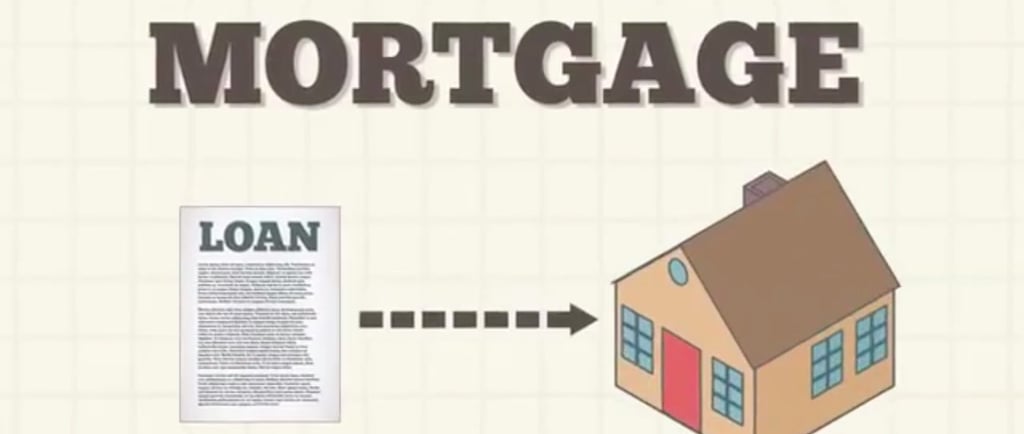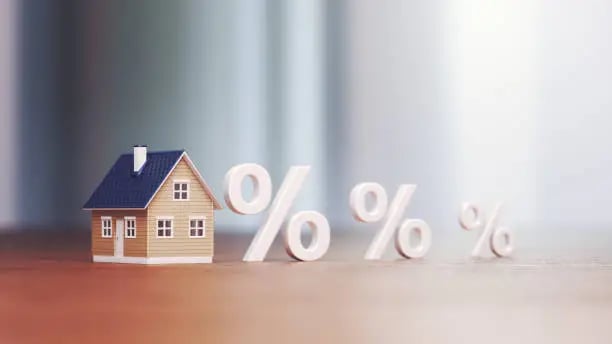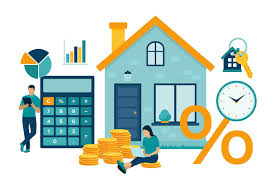Mortgage
A mortgage refers to a loan utilized for the acquisition of a home or other real estate, with the property itself acting as collateral. The borrower commits to repaying the loan amount—along with interest—over a specified duration, typically ranging from 15 to 30 years.
flixah developers
7/8/20254 min read


What Is a Mortgage?
A mortgage refers to a loan utilized for the acquisition of a home or other real estate, with the property itself acting as collateral. The borrower commits to repaying the loan amount—along with interest—over a specified duration, typically ranging from 15 to 30 years.
In the event that the borrower defaults on payments, the lender has the right to foreclose on the property, which entails taking ownership and selling it to recoup the outstanding debt.
📊 Key Mortgage Terms You Should Know
Prior to engaging in the process, here are several common terms associated with mortgages that you may encounter:
Principal: The initial amount of the loan.
Interest: The expense incurred for borrowing the principal.
Amortization: The method of repaying the loan through regular payments.
Down payment: The upfront payment made initially (generally between 3% and 20%).
PMI (Private Mortgage Insurance): Insurance that protects the lender if your down payment is below 20%.
Escrow: An account overseen by your lender for the payment of property taxes and insurance.
Types of Mortgages
There are various types of mortgage loans available, each with distinct terms and eligibility requirements.
1. Fixed-Rate Mortgage
The interest rate remains constant throughout the duration of the loan.
Ideal for homeowners looking for long-term stability.
Offers predictable monthly payments.
2. Adjustable-Rate Mortgage (ARM)
The initial interest rate is lower but adjusts at regular intervals.
Suitable for those planning short-term stays or anticipating rising income.
Includes rate caps to mitigate risk.
3. FHA Loan
This loan is insured by the Federal Housing Administration.
It is tailored for borrowers with low to moderate incomes.
Features lower credit score and down payment requirements.
4. VA Loan
Available for veterans, active-duty service members, and their families.
No down payment is necessary.
This loan is backed by the Department of Veterans Affairs.
5. USDA Loan
Designed for homebuyers in rural and suburban areas.
No down payment is required.
Income limits are applicable.
6. Jumbo Loan
This type exceeds the conforming loan limits.
It comes with higher interest rates.
Requires excellent credit and a substantial down payment.
📋 The Mortgage Application Process
The process of securing a mortgage consists of several essential steps:
Step 1: Pre-Approval
A lender evaluates your credit, income, debts, and assets.
You will receive a letter indicating the amount you are eligible to borrow.
This demonstrates to sellers that you are a serious buyer.
Step 2: Find a Property
Collaborate with a real estate agent to locate a suitable home.
Make an offer, engage in negotiations, and finalize a purchase agreement.
Step 3: Mortgage Application
Submit the complete loan application along with necessary documents (W-2s, tax returns, pay stubs, bank statements).
Select a loan type and duration.
Step 4: Loan Processing and Underwriting
The lender verifies your details.
An underwriter evaluates risk and determines whether to approve your loan.
Step 5: Appraisal and Inspection
The property undergoes appraisal to establish its market value.
A home inspection assesses structural integrity and safety concerns.
Step 6: Closing
You sign the final documents.
Pay the closing costs (generally 2%–5% of the purchase price).
Receive the keys to your new residence!
💰 How Much Can You Afford?
Prior to applying, determine how much home you can realistically afford. Lenders utilize the Debt-to-Income Ratio (DTI) to assess your repayment capability.
Formula:
DTI = (Total Monthly Debt Payments ÷ Gross Monthly Income) × 100
Lenders usually prefer a DTI below 43%, although some programs permit higher ratios.
Additionally, consider:
Monthly mortgage payments
Property taxes
Homeowners insurance
Maintenance expenses
HOA fees (if applicable)
📈 Mortgage Interest Rates: Fixed vs. Variable
Your mortgage rate significantly influences your total repayment. Below is a comparison of the two primary types:
Type Interest Monthly Payment Risk
Fixed-Rate Constant Stable Low
ARM Varies after introductory period Changes Medium to High
Pro tip: Secure your rate during the application process if you anticipate an increase in rates.
🛡️ What Affects Your Mortgage Rate?
Credit Score: Higher scores (740+) qualify for better rates.
Down Payment: Larger down payments mitigate lender risk.
Loan Term: Shorter terms generally offer lower rates.
Loan Amount: Larger amounts may lead to higher rates.
Market Conditions: Rates fluctuate with economic conditions.
Guidelines for Securing the Optimal Mortgage
Enhance Your Credit Rating
Eliminate outstanding debts.
Ensure timely payments.
Review your credit report for inaccuracies.
Accumulate a Larger Down Payment
Strive for 20% to evade PMI.
Higher down payments reduce monthly expenses.
Evaluate Lenders
Do not accept the initial offer.
Obtain quotes from various banks, credit unions, and online lenders.
Comprehend All Expenses
Closing costs, points, insurance, taxes.
Examine the Loan Estimate and Closing Disclosure meticulously.
Obtain Pre-Approval
Enhances bargaining power.
Assists in adhering to your budget.
❗ Frequent Mortgage Errors to Evade
Exceeding your budget: Just because you are approved for a specific amount does not imply you should utilize the entire sum.
Bypassing pre-approval: You might forfeit the home you desire.
Disregarding fees: Origination fees, title insurance, and additional costs accumulate.
Failing to lock your rate: Interest rates can escalate rapidly.
Making significant purchases prior to closing: This could negatively impact your credit and DTI ratio.
🌍 Global Mortgage Overview
Canada: A comparable system, yet most mortgages feature 5-year terms with 25-30 year amortization.
UK: Provides fixed and tracker mortgages; affordability regulations are more stringent following 2008.
Australia: Includes variable-rate loans and offset accounts.
India: Longer loan terms are accessible, but interest rates are generally higher.
🔮 The Prospective Landscape of Mortgages
Technological advancements and innovation are transforming the mortgage sector:
Online applications and AI-driven approvals
Blockchain for secure, unalterable contracts
Fintech collaborations facilitating quicker closings and enhanced user experiences
We may also witness:
Increased flexibility in underwriting
Incorporation of ESG factors (environmental, social, governance)
Greater accessibility to mortgages through open banking
Concluding Remarks
A mortgage represents one of the most substantial financial obligations you will encounter in your lifetime. It is crucial to comprehend your choices, engage in thorough preparation, and select a loan that corresponds with your long-term objectives. Whether you are purchasing your initial home or refinancing, being well-informed can result in significant savings—both financially and in terms of stress.
Take the necessary time, pose inquiries, and do not hesitate to seek expert guidance from mortgage brokers, financial advisors, and real estate professionals.
for more info on real estate investment , financial advice you can visit our website flixahdeveloperspvtltd.com or you can call us @ +91 9100600730












